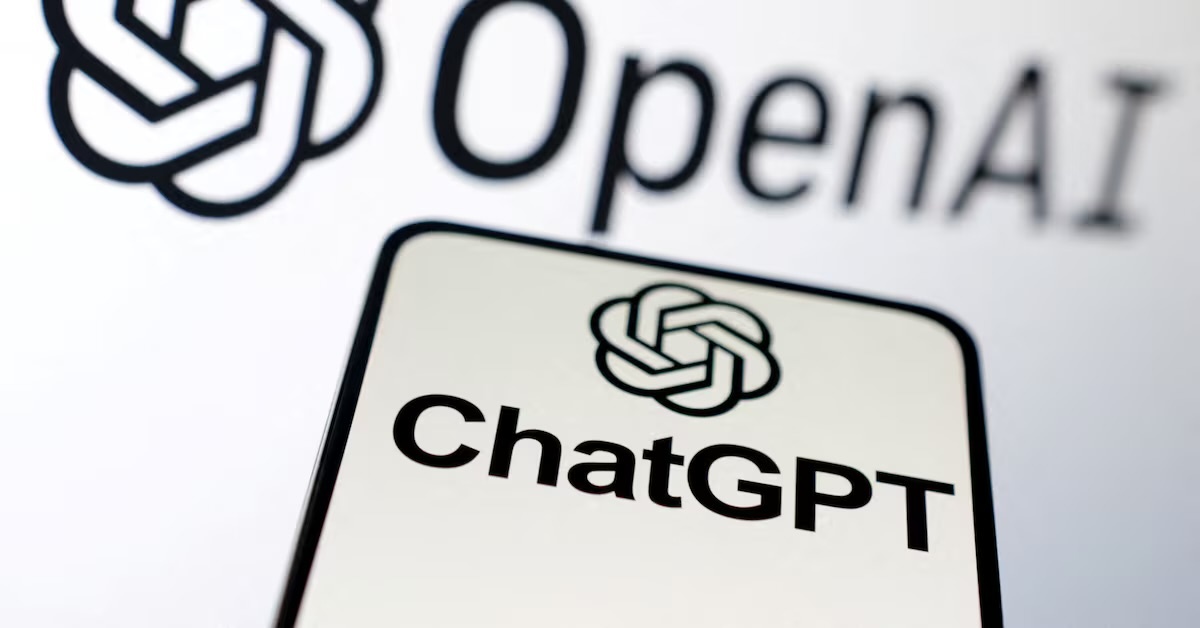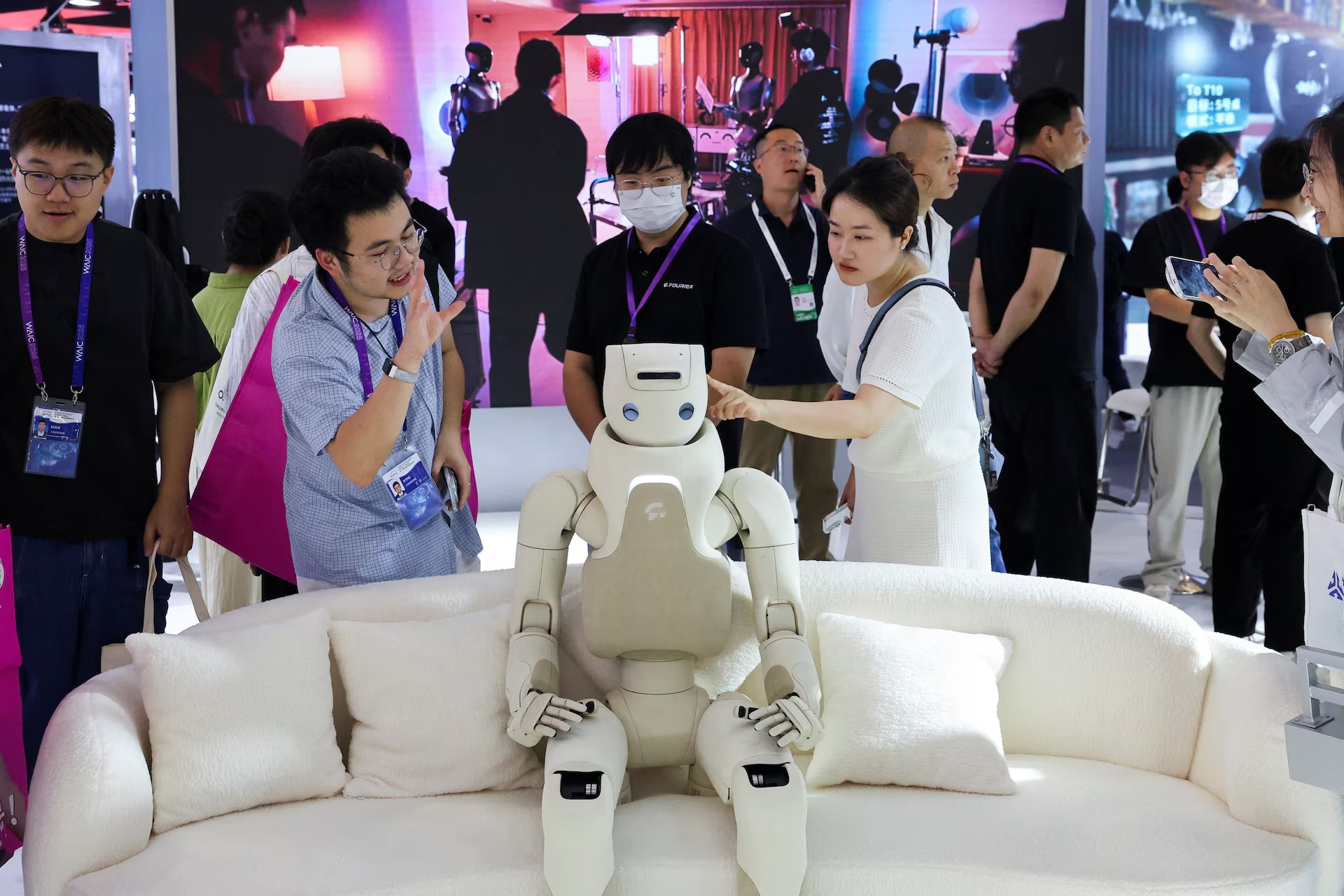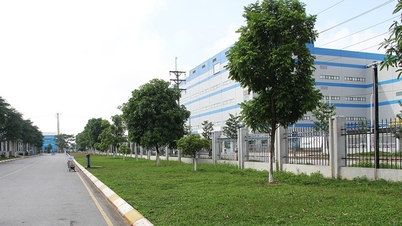 |
China's technological advances. Photo: Reuters . |
AI is no longer just a technology race between the big guys, but has gradually become a national strategy. Currently, the world's technological powers are more open to applying AI in people's lives.
Different places are taking different AI strategies. While the UK and US innovate domestically and Europe opts for responsible control, China is quietly establishing a new order, with ambitions to become a global tech counterweight.
Western AI Governance Perspectives
At the AI Action Summit in February 2025, France and India called for a vision of “fair, sustainable AI in the service of humanity.” This joint statement seeks to promote open-source, community-driven technology with clear ethical guidelines.
The US and the UK did not sign the Paris declaration, saying it “lacks clarity on security, AI control and freedom of innovation”. They advocated open innovation markets and avoided too much international regulation.
In fact, governments on both sides of the Atlantic are quickly turning to private AI companies to gain an edge in the increasingly fierce technology race. OpenAI has signed a new partnership with the UK government to integrate advanced AI into public services, improving efficiency in key areas such as health, justice, education and local councils.
OpenAI has been helping to provide an in-house AI assistant called Humphrey, which helps civil servants with administrative tasks, speeding up everyday processes. The deal positions the UK as a key player in the AI sector in Europe, promising to create high-skilled jobs and significant investment in infrastructure.
 |
OpenAI has just won two important contracts with the British and US governments . Photo: Reuters. |
Meanwhile in the US, Elon Musk's xAI company has won a major contract with the Department of Defense, despite recent controversy surrounding its Grok chatbot. Google's OpenAI has also won a similar contract, worth $200 million , focusing on developing AI prototypes, both for combat and internal government operations.
The UK’s approach to AI focuses on safety, regulatory compliance and transforming public services, while the US move shows it is willing to fund emerging AI technologies that can be quickly adapted to serve defense and broader government goals.
Governments are moving from a cautious approach to a more proactive strategy in investing in AI. For citizens, this means that AI will become an increasingly important and unavoidable part of everyday life.
China's AI ambitions
China said on July 27 it wants to set up an organization to promote global cooperation on artificial intelligence, positioning itself as an alternative to the United States as the two compete for influence over the groundbreaking technology.
Speaking at the annual World Artificial Intelligence Conference (WAI) in Shanghai, Premier Li Qiang appeared to allude to US efforts to hinder China’s progress in AI, warning that the technology risks becoming a “monopoly” for a handful of countries and companies.
China wants AI to be shared openly and for all countries and companies to have equal access. Mr. Li said that Beijing is willing to share its development experience and products, especially with developing, emerging or low-income countries, mainly located in the Southern Hemisphere.
 |
China shares progress at WAI Conference. Photo: Reuters. |
The growing risks of AI are another concern. Mr. Lee noted that current bottlenecks include limited supply of AI chips and barriers to talent exchange. “Global AI governance is still fragmented. Countries differ greatly, especially in areas such as management perspectives and institutional regulations,” he said.
At the event, Chinese Vice Foreign Minister Ma Zhaoxu spoke at a roundtable with representatives from more than 30 countries, including Russia, South Africa, Qatar, South Korea and Germany. China's Foreign Ministry published online an action plan for global AI governance, through a cross-border open-source community, and is considering locating its headquarters in Shanghai.
In recent years, the country has stepped up the construction of data infrastructure and increased technological autonomy amid many restrictions from the US. The country announced a program worth hundreds of billions of yuan, investing in universities, AI companies, and domestic research labs.
Artificial intelligence is becoming a priority in many countries’ national strategies. China’s ambitions show that it wants to do AI not only well, but also have a global impact.
Source: https://znews.vn/trat-tu-ai-moi-cua-trung-quoc-post1572290.html



![[Photo] Panorama of the cable-stayed bridge, the final bottleneck of the Ben Luc-Long Thanh expressway](https://vphoto.vietnam.vn/thumb/1200x675/vietnam/resource/IMAGE/2025/9/30/391fdf21025541d6b2f092e49a17243f)
![[Photo] Solemn opening of the 12th Military Party Congress for the 2025-2030 term](https://vphoto.vietnam.vn/thumb/1200x675/vietnam/resource/IMAGE/2025/9/30/2cd383b3130d41a1a4b5ace0d5eb989d)
![[Photo] President Luong Cuong receives President of the Cuban National Assembly Esteban Lazo Hernandez](https://vphoto.vietnam.vn/thumb/1200x675/vietnam/resource/IMAGE/2025/9/30/4d38932911c24f6ea1936252bd5427fa)
![[Photo] The 1st Congress of Phu Tho Provincial Party Committee, term 2025-2030](https://vphoto.vietnam.vn/thumb/1200x675/vietnam/resource/IMAGE/2025/9/30/1507da06216649bba8a1ce6251816820)
![[Photo] General Secretary To Lam, Secretary of the Central Military Commission attends the 12th Party Congress of the Army](https://vphoto.vietnam.vn/thumb/1200x675/vietnam/resource/IMAGE/2025/9/30/9b63aaa37ddb472ead84e3870a8ae825)

























































































Comment (0)